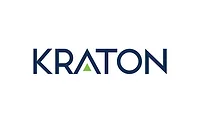Kraton Corp. Unveils 2018 Sustainability Report
HOUSTON — Kraton Corp. has released its 2018 Sustainability Report, highlighting continued efforts to integrate sustainability throughout the organization. Kraton Corp. produces styrenic block copolymers, specialty polymers and high-value performance products derived from pinewood pulping co-products.
"Kraton's commitment to sustainability is a key element in our long-term strategy as we focus on driving value for all of our stakeholders," said Kevin M. Fogarty, Kraton's President and CEO. "Our strategic approach to incorporating sustainability within the enterprise opens opportunities to further grow our business, improve productivity and manage risks."
The report covers the status of Kraton's sustainability initiatives for 2018, including a focus on key areas like improving raw material use, operational efficiency, environmental impact, health and safety, and supply chain transparency. Kraton is also committed to conducting 12 life cycle assessments for key products by 2020. Life cycle assessments help identify sustainability improvements throughout the value chain, enabling Kraton's customers to better measure and reduce their environmental impacts.
In 2018, Kraton certified 11 new product families under the European Biobased Certification Scheme, which specifies and validates a product's biomass amount based on the European standard EN 16785-1. To date, that is a total of 31 product family certifications covering more than 100 products.
"Whether it's by supplying renewable materials or enabling cleaner, safer performance, Kraton is well positioned to play a key role in creating tomorrow's sustainable future," said Fogarty. "By integrating sustainability through our people, plants and processes, we can make a positive difference in delivering long-term value in a resource-constrained world."
The report is prepared according to the Global Reporting Initiative Standards. To view the full report, visit www.kraton.com.
Looking for a reprint of this article?
From high-res PDFs to custom plaques, order your copy today!






